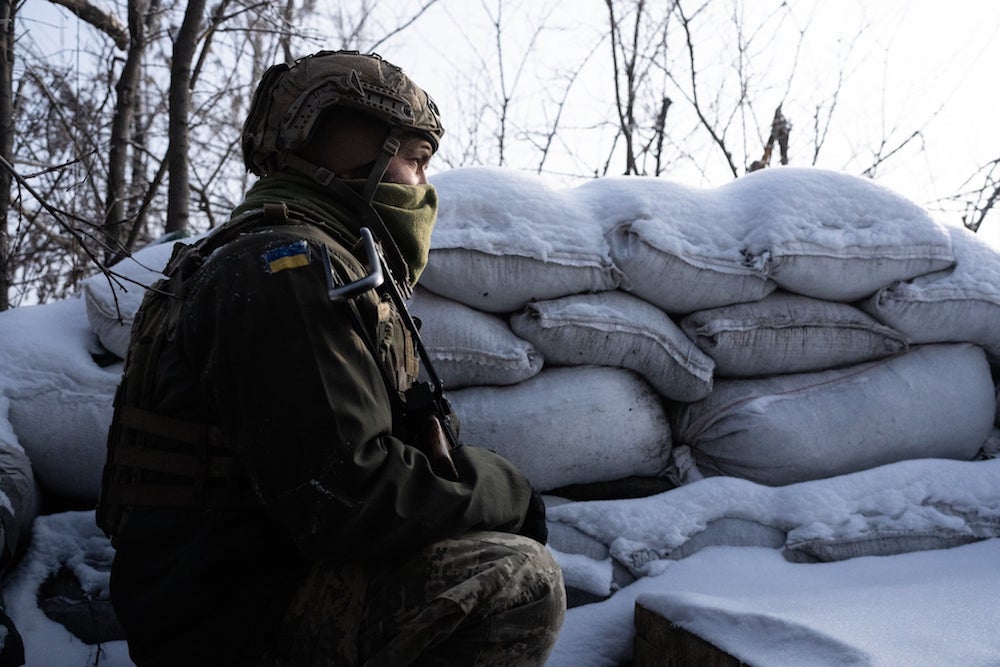Op-ed: which side is Georgia on in the conflict over Ukraine?
Georgia’s position on the Ukrainian crisis
On February 1, the Parliament of Georgia adopted a “resolution in support of Ukraine”, which does not mention Russia as the aggressor and the main culprit in the current crisis.
Georgia, which suffered from Russia’s aggression in the same way as Ukraine, did not dare to condemn the aggressor, even in words.
All the efforts of the Georgian opposition were in vain – ignoring the role of Russia turned out to be the principled position of the ruling Georgian Dream party. In response to objections, the speakers of the authorities stated that they needed peace, while the opposition needed war and confrontation. Authorities added that it was ex-president Mikheil Saakashvili [and founder of what is currently Georgia’s largest opposition party] who was to blame for the 2008 war.
- Protesters in Tbilisi demand authorities to support Ukraine
- Zone of fear: report from the Georgian-Abkhaz dividing line
This message has often been used since 2012 election campaign by the ruling Georgian Dream party and its founder (the oligarch Bidzina Ivanishvili, who, personally, made his fortune in Russia).
According to this logic, if Saakashvili (meaning the Georgian side) is clearly the only one to blame for the military conflict with Russia, then, Russia is only partially guilty or not guilty at all. And, in general, this topic should not be touched again, “to avoid triggering something accidentally”.
Moreover, after the change of power in Georgia, Russia reopened its market for Georgian goods. And the country’s dependence on exports to Russia, tourism from Russia, and Russian food imports have skyrocketed over the years.
This means more leverage in the hands of Moscow. It has already taken advantage of one of them, suspending flights with Georgia in the summer of 2019 after the unrest caused by the invitation of the Russian deputy Gavrilov to the Georgian parliament.
It is, of course, possible to understand the position of Georgian authorities, but not to forgive them.

But today much more important issues are being resolved in Ukraine than the size of Georgian exports of wine and parsley.
Russia presented the US and NATO with an ultimatum, in fact demanding sole control over the entire post-Soviet space. Fortunately, the West did not accept it. But any outcome of this military-diplomatic conflict will have the most direct impact on Georgia.
It can be said without exaggeration that the fate of not only Ukraine but also Georgia is being decided for many years to come.
An agreement is being prepared to create a new alliance that will include the UK, Poland and Ukraine, which, logically, Georgia should have also entered – as one of the closest allies of these countries, and a country having common interests with them.
But alas, the Georgian authorities have shown precisely zero interest in this initiative, and generally behave as if all this is happening somewhere between Somalia and Eritrea, and does not concern Georgia at all.
In 2014, when Russia annexed Ukrainian Crimea and war broke out in eastern Ukraine, Georgia had a chance to remind the world of the aftermath of the 2008 war, which everyone had forgotten by then.
The Prime Minister of Georgia, Irakli Garibashvili, was invited to speak live on BBC to tell the Western audience about the problems of Georgia, which were so similar to the problems of Ukraine.
But alas, Garibashvili used this opportunity to say that comparing Crimea with Abkhazia and South Ossetia is a “big mistake”, since Russia is not going to annex them (was he personally informed about this?). That Georgia has been successful in mending relations with Russia and has struck a “perfect balance” between Moscow and the EU, unlike Ukraine.
Since then, the Prime Minister of Georgia was no longer invited to the live broadcast of the BBC, the issue of Georgia in the rhetoric of Western leaders and adopted resolutions and other documents relating to Ukraine and the post-Soviet space has faded away and gradually disappeared.
It would have stayed off the agenda, if it was not for the escalation of the conflict around Ukraine.
History has given Georgia another chance to remind the world of itself and to attract the support of the civilized world. But alas, the Georgian Dream is still in power in Georgia and Garibashvili is still the prime minister.
Even now Georgia is staying as quiet as a mouse, so as not to once again attract attention to itself and not to catch the eye of Vladimir Putin.
But, fortunately, there are things that do not depend on the government of Georgia.
For example, despite Putin’s demands, NATO’s “open door” policy is still in place, which means Georgia has a chance to join it one day.
British Prime Minister Boris Johnson speaks about the inadmissibility of establishing a “sphere of influence of Russia”, in this context he mentions Georgia and Moldova, in addition to Ukraine.
The United States and NATO, in their documents sent in response to the Kremlin’s ultimatum, demand that Russia withdraws its troops, including from Georgia.
This is not the merit of the Georgian authorities – all this happens because Georgia is on the map, and the world still remembers 2008.
Today, on the side of Georgia is the consolidated will of Western countries and international law, which come to the rescue when Georgian authorities are clearly not acting in the interests of the country.


















